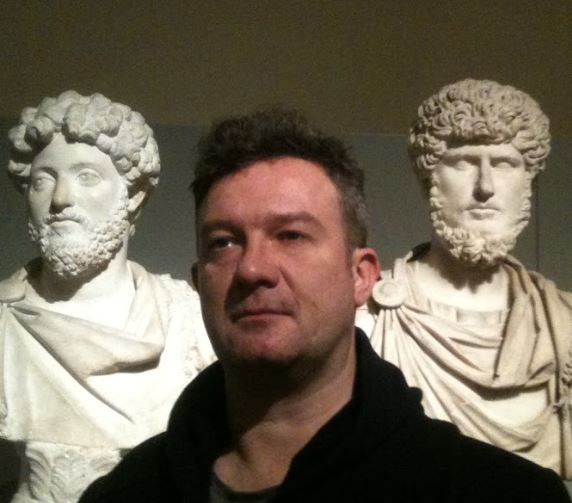.png)
Inverse consequentialism, ‘Means justify ends’ in cultural organisations and strategy
Event details
For this week's Research Seminar, please join Milan Todorovic (London Metropolitan University), to hear about their research on the Inverse consequentialism or neo-Machiavellian co-opting: “Means justify ends”, in culture and destructive creativities of a disruptive venture.
“Positioning and manoeuvre are explored by social pragmatists (e.g. Bernays, Gramsci, Mintzberg, Machiavelli) and methodologists (Hall, Foucault). The metaphorical poetic style of Sun Tzu also hints at turning abstract notions into the logic of value contest, risk evaluation and gaming foresight. The notion that strategy is art – not science (though logical) is rooted in its generic aims, which include contest, overpowering the opponent, domination and control” (Todorovic 2016: 54).
Whether it is about ‘amplifying the media signal through the white noise of content’ (Todorovic 2016: 111) or surviving in the cut-throat brutality of entertainment industry environments, securing funding for public events in the economically deprived cultural sectors, “Machiavelli is more relevant than in the past. Corporations resemble strict feudal pyramids of renaissance kingdoms and principalities and are as powerful on the global scale” (Todorovic 2016: 173).
However, one should not take the great diplomat literally. His words misquoted – he was far too experienced to ever act in such bad taste as to utter those words literally – Machiavelli draws the reader’s attention to the interplay of Fortuna and Virtu, or as in today’s [post]structuralist terms, Structure and Agency, drawing the reader to conclude that Roman morality that espoused the two was rather hypocritical and that in the realpolitik of his age, just as any other epoch, appearances may be [are] deceitful.
What is more realpolitik than business strategy? Hardly anything, especially in the first quarter of the XXI Century (we can hardly judge its precursor by the events of 1924!). This, at a time when business strategy permeates all life on all continents and across civilisational, educational, ideological, and historical divides. The fact that CSR and sustainability are two powerful forces which would have been laughed off by business leaders less than a generation ago, serves as evidence of the realpolitik/strategy nexus.
We may find the root of that in the [to date, only] Counterculture of the late 1960s. The ‘rock and roll’ ethos of a popular uprising of the youth of its day, creating its own alternative economy, epitomised in the underground art and music, film and theatre of the time had led to the flourishing of myriad forms in creativity, culture and business alike, which we now identify as ‘postmodern’ diversity which has turned theory to fact. The ethical tenets of the movement were then transposed into the “Well”, a proto-social medium of the post-hippies in 1984, and some of the iconic leaders of the ICT sector that now rules supreme were ‘dropping acid’ when young. The new approach to business pragmatism, and a novel ethics was thus born out of rebellion.
Three case studies collected from 2008-2015, those of Bonn’s “Rheinkultur”, London’s “Foundry” and Novi Sad’s “Exit Fest” serve as factual evidence how means justify ends, and how a cultural revolution [Sic!] of those rebellious events/community formations had created both the new business models and their neoliberal counterparts [nemeses?] where the ‘end’: survival, profit-making etc., thrive on novel ‘Values Chains’.
Can't join the event in person? See the event online instead.
Meeting ID: 967 9721 8269
Passcode: 878342
About the speaker

Dr Milan Todorovic
Dr Milan Todorovic is a polymath. Boldly describing himself as “inherently multidisciplinary”, he utilises his experience in art, understanding of science, sociological expertise and business research in strategic management innovation and novel curriculum design. Milan’s currently works on a “sequel” to his Forbes-endorsed 2016 research monograph which examined the breadth and depth of strategies in Creative and Cultural Industries (CCI) based on fieldwork across sectors and forms of practice. This new tome explores the means of disentanglement from the digital world in ontological, cognitive and social terms alike by utilising its contributions whilst dismantling its ‘hypnotic’ features. Todorovic writes on AI + CSR imperatives and supervises research degree projects that take care of strategic matters in the CCI from multiple perspectives. An accomplished artist/producer in visual and audio-visual media, Milan prefers to keep much of his creative work clandestine while primarily focusing his output as an academic and a course leader in music and media management at London Met University.
Venue details
Contact
TFTI Events